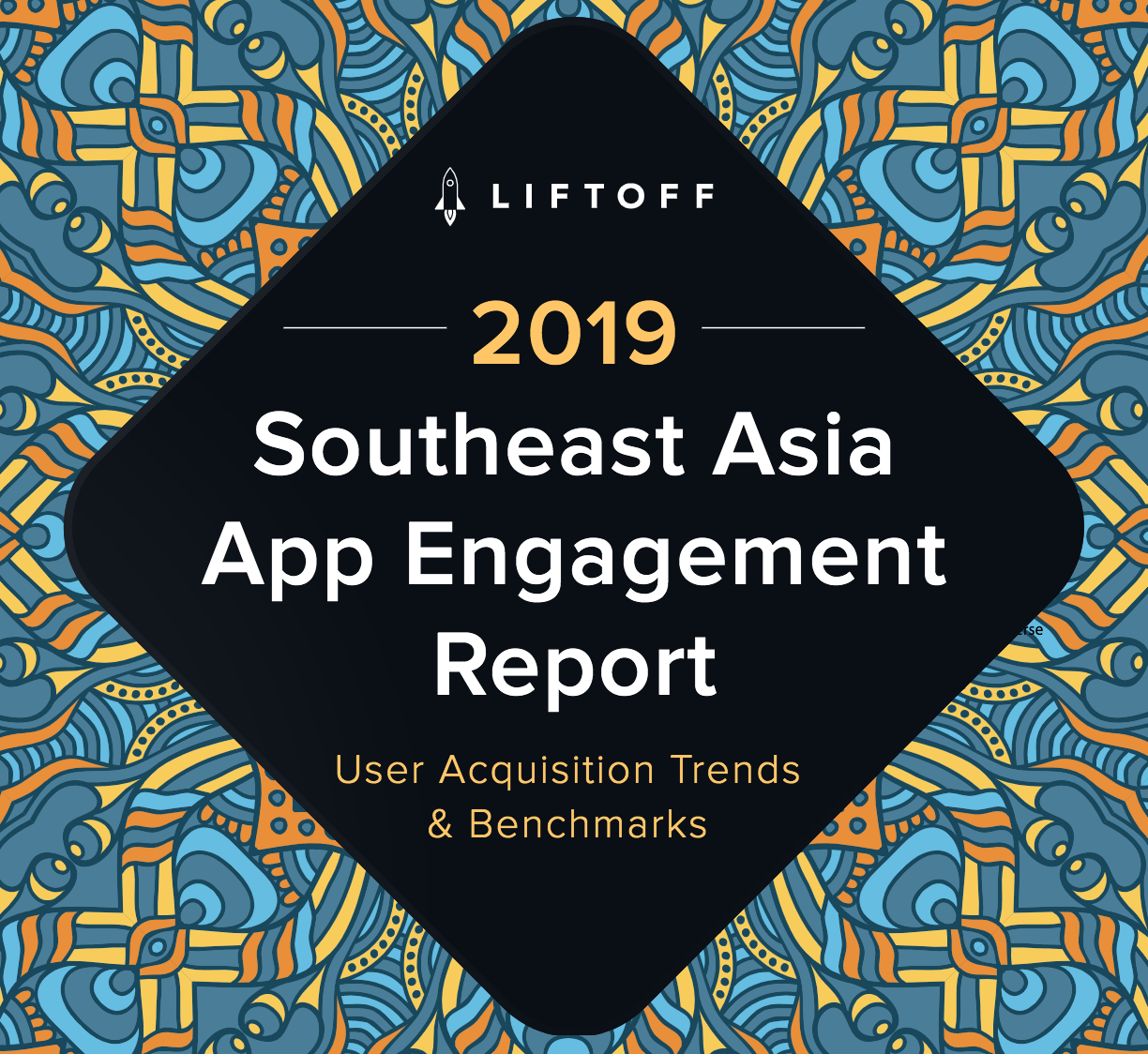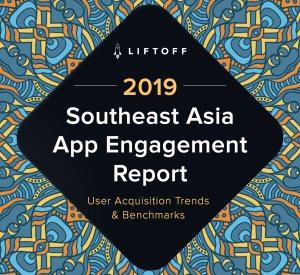

The Liftoff 2019 Southeast Asia App Engagement Report provides data on the various aspects of app usage – covering everything from mobile engagement benchmarks, seasonal trends, costs per conversion rate, engagement platforms and retention rates across the region. It provides marketing insights from Liftoff’s mobile app campaigns in Malaysia, Indonesia, Philippines, Vietnam, Myanmar, Singapore and Thailand between 1 March 2018 to February 28, 2019; spanning 28 billion ad impressions, 656 million ad clicks, 5.2 million installs, and 13.5 million first-time post-install events.
Liftoff noted in its report that Southeast Asia has the worlds most engaged mobile users, and mobile has transformed into a central pillar of the region’s economic transformation. To illustrate, up to 90 percent of people in Southeast Asia connect to the internet via their smartphones and spend an average of four hours on mobile apps; an hour more than the rest of the world. Rising affluence, urbanization, and growing demand for convenience are the key drivers of further mobile growth in the region.
However, despite the extensive use of mobile engagement in the region, the adoption of digital technology and growth of income in Southeast Asia is still much lower when compared to other major markets; requiring mobile marketers to take a hyper-local approach in each country and rely on data to guide their strategies.
Below are some of the key insights obtained from the Liftoff 2019 Southeast Asia App Engagement Report:
Scaling user acquisition in a diverse market comes with its own set of challenges
Southeast Asia is regionally diverse in culture, politics, religion, language, and income – meaning that marketers need to take a localized approach in each country. As part of this challenge, seasonality affects shopper behaviour in Southeast Asia more so than in other regions. For example, June 2018, the month of Ramadan, had the highest cost for acquiring mobile users who made a purchase, signalling that for the best ROI, marketers must learn and engage high-value mobile users at the right time and plan their campaigns around local and cultural holidays.
Consumer patterns in the region are also highly influenced by tourist seasons, the countries local New Year celebrations such as Songkran in Thailand, shopping holidays and the weather.
Affordability in acquiring users
Data shows that acquiring users within Southeast Asia far more affordable compared to the more mature markets where mobile has become ubiquitous. Obtaining users in Southeast Asia is 73 percent less than in the U.S. and 65% less than in other APAC countries (excluding Southeast Asia).
Indonesia and Singapore lead retention rates
Acquiring new users cost more than retaining existing ones, and as the mobile app economy grows, mobile marketers focus on customer re-engagement and retention. In Southeast Asia, the average daily retention for different app categories varies from country to country; a reflection of the Southeast Asia’s diversity in consumer wants and needs.
Singaporeans are heavy social media users and have the highest mobile retention rate in the region. In Singapore, 83% of the population are active social media users, in comparison to 42% on average in SEA.
Mobile measurement company, Adjust covered the period from January through December 2018. The data examines the average daily retention, defined as the percentage of users who come back to use the app on a specific day. Indonesia has the highest Day one retention rate at 24%, but by day 30, this drops to 6%. Singapore, however, has the second highest retention rate at 22%, but on day 30 has an 8% retention rate.
Southeast Asia’s manifold prospects
Contrary to the common perception that iOS users spend more money (US$21.40 more per transaction), Liftoff’s data suggests that, within Southeast Asia, this is the opposite. Android users not only cost 1 percent less than their iOS counterparts but also purchase at a higher rate (2.19% on Android vs. 1.81% on iOS). The data suggest that the Android consumer segment within SEA is a global ‘exception’, or – considering the market’s potential – perhaps the new ‘normal’.
Another significant area of opportunity is mobile shopping platforms. This is as acquiring mobile users who install, register, and purchase in shopping apps costs less in Southeast Asia compared to the rest of the world. Purchasing rates mirror the global benchmark (7 percent), signalling that the region is on par with the rest of the world when it comes to spending money on mobile.
Social media affinity
While the usage of mainstream social media is predicted to decline in North America, in Southeast Asia, it is on the rise. According to eMarkerter 2017 Facebook lost 2.8 million us users under the age of 25 in the U.S., however as of 2018, The new 2018 Global Digital suite reported that Philippines had the highest rate of social media users in the world, 75% of the Singaporean population are active internet users, and according to We Are Social’s Digital 2017 report, the number of active social media users in Southeast Asia grew to 31% in a year with over half the population in SEA on social media. Liftoff’s data shows that Social Networking is the stickiest app category based on the average day 30 retention rate, preceded only by Entertainment and Gaming.







